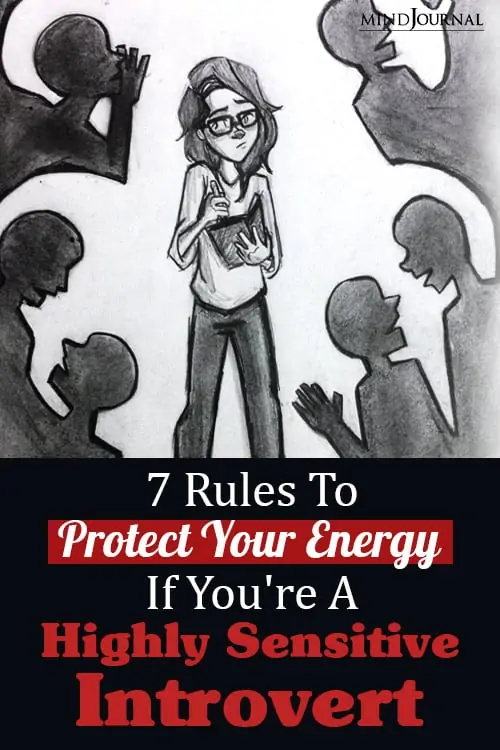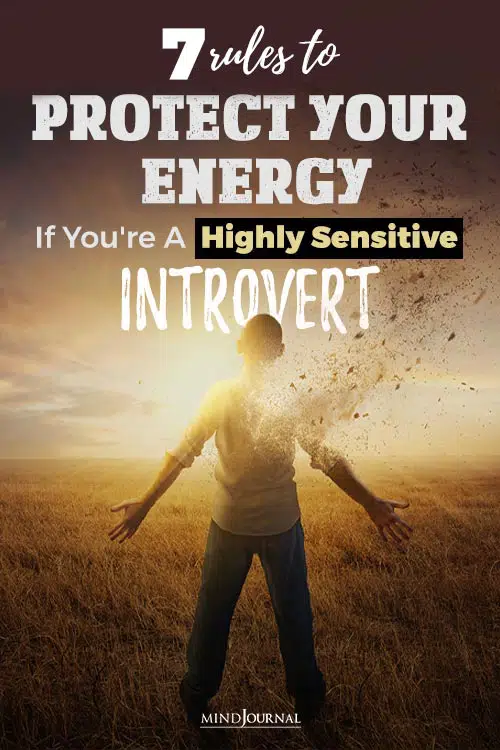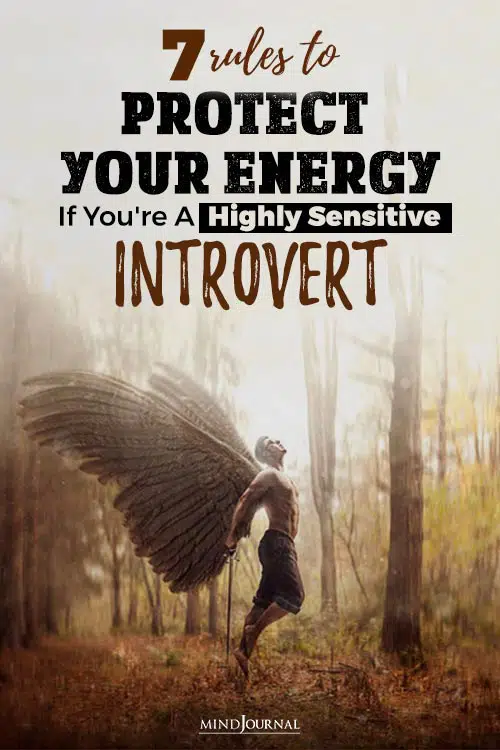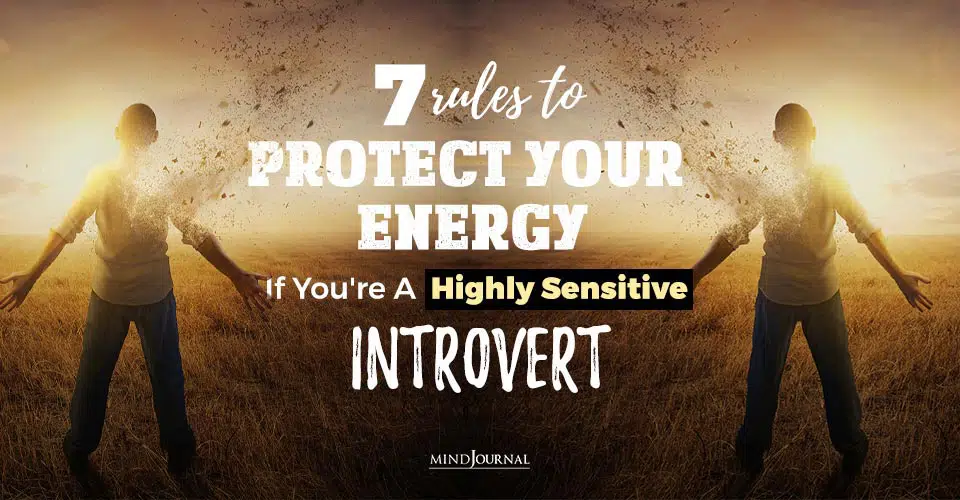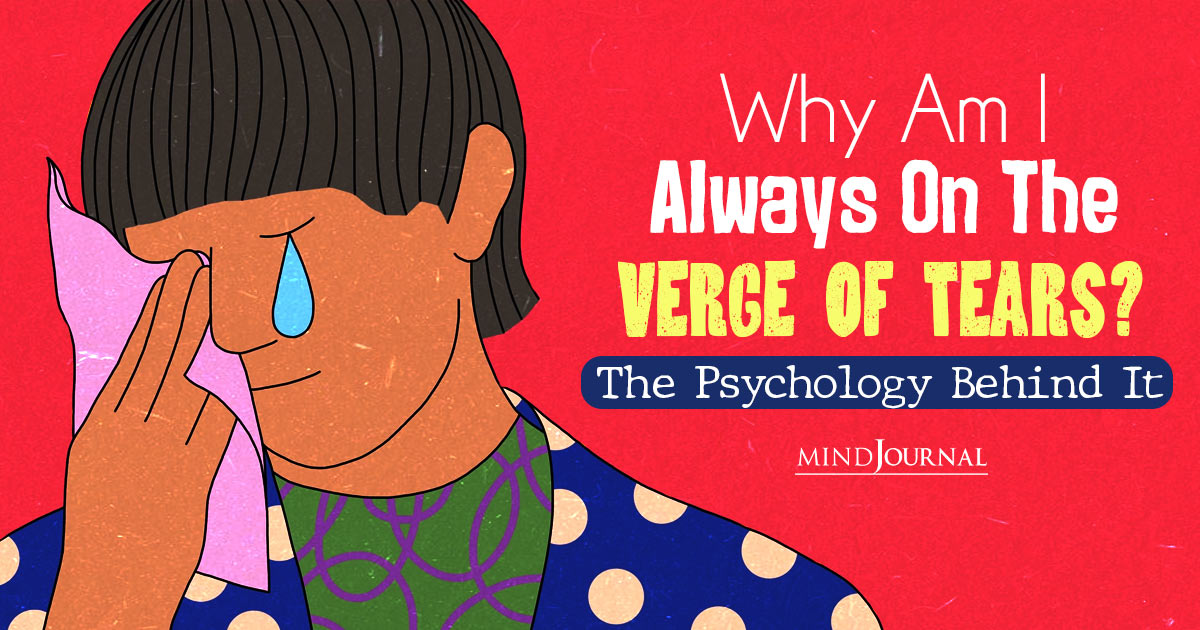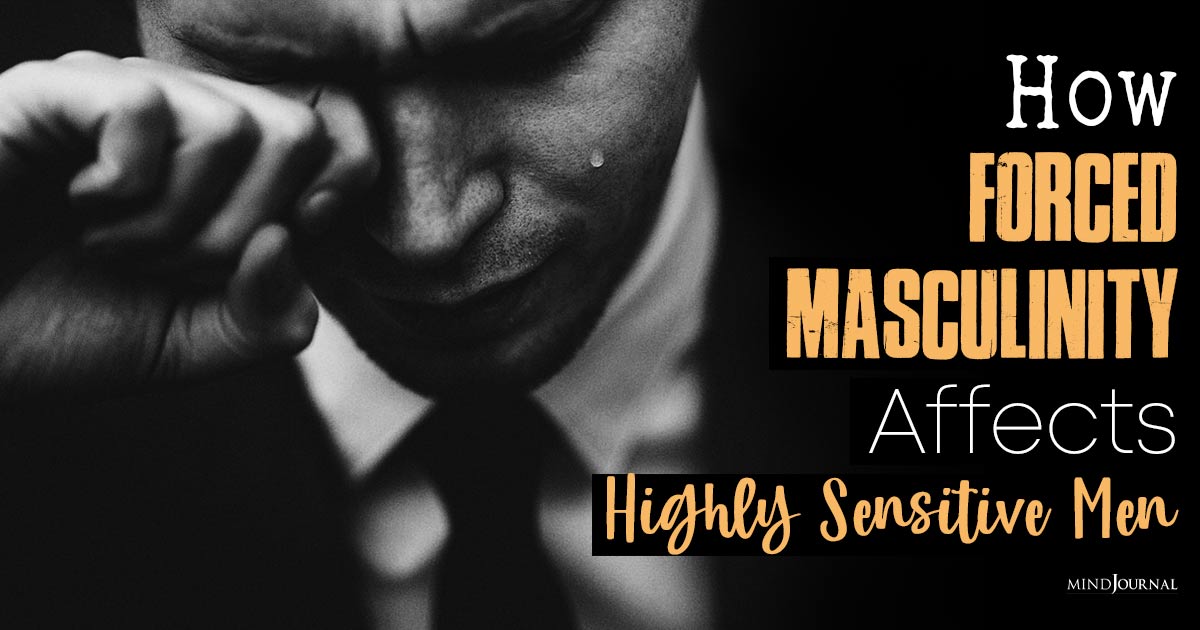“Why are you so vulnerable?”— I’ve grown up hearing this. Especially during my teenage years, my oversensitive, emotional, and thin-skinned nature gave me serious trouble because the smallest of things would affect me deeply.
I felt I could never completely fit in anywhere without hiding/changing certain parts of me. On top of that, I was introverted and couldn’t open up easily to others. Thankfully, I grew past that ugly phase. But I wish someone would have told me back then that I’m not some weird person, rather I’m a highly sensitive introvert, like many others out there.
Highly sensitive people make up 15-20% of the population, and out of them, 70% are introverts– so that’s quite a large number of people who identify as highly sensitive introverts. I’m sure, growing up, many of you have felt that you are different, and life isn’t easy being you and that you have “weird sensitivities” and need to hide your authentic self from the world.
But the truth is that your uniqueness is your power.
Yes, living in a world where the extroverted personality is idealized, can be pretty challenging for a highly sensitive introvert. They are hypersensitive to all types of energies around them. But with the right boundaries and rules, you can protect your energy, find balance and lead the life you have envisioned for yourself.
The biology of the nervous system of a highly sensitive person is different, which is why they get overwhelmed by their environments so easily. They are oversensitive to every stimulus, so they naturally feel, think, and care deeply about the smallest of things.
Traits of highly sensitive introverts:
1. Loud noises, strong smells, itchy clothes, and bright lights feel like an attack on their senses.
2. They feel the feelings of the people around them. Highly sensitive people absorb other people’s energy and emotions.
Read: 7 Tips To Deal With Emotional Flooding For Highly Sensitive People
3. Less sleep can heighten their irritability. Daily interaction with the world around them is very exhausting, so they get more mentally strained than others and hence need more sleep.
4. A Highly sensitive person notices every tiny detail and gesture. Also, they over-analyze their interactions with other people.
5. Socializing and making small talk the way most people do isn’t their cup of tea.

6. Deeply affected by unkindness, cruelty, and injustice of any kind.
7. Adjusting to changes is especially hard for them. They like to stick to their routine because anything new can cause them to feel stress and anxiety.
8. They are more sensitive to changes in blood sugar levels, which means that not eating at proper intervals can make them more irritable to their environment.
Read: 25 Signs You’re A Highly Sensitive Person
Self-care is the thing right now- everyone is talking about it. For a highly sensitive introvert, the most important form of self-care is protecting their energy, and hence their peace of mind.
Being in the presence of negative energy can wreak havoc with your mood and overall wellbeing. So you must shield yourself from loud, rude, manipulative, mean, and self-serving environments.
Steps to follow to protect your energy
- Be aware when you’re picking up other people’s emotions.
- Practice not feeling their feelings, which is clearly a hard-earned skill for highly sensitive people.
- You need to be aware and intentional about the amount and kind of energy you allow in your life.
- Get into the habit of expressing negative feelings. Although a highly sensitive person hates conflict, suppressing emotions can be dangerous for your mental health.
- Don’t feel guilty about making your own welfare a priority. Work through the guilt that will inevitably hit you for not choosing to feel what others are feeling.
7 Rules To Protect Your Energy If You’re A Highly Sensitive Introvert
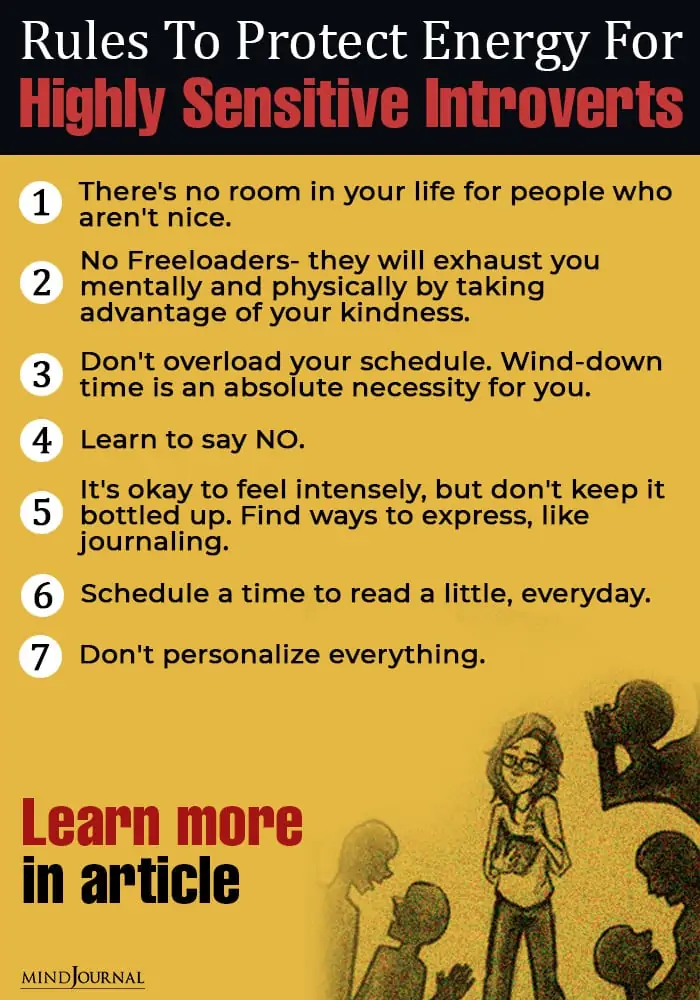
1. There’s no room in your life for people who aren’t nice
Being sensitive has both perks and downsides. Yes, we intuitively feel what other people are going through, without them having to explain anything. But we also pick up negatives vibes very quickly, and it can drastically alter our mood and perception. We can pick up the slightest hints of passive aggression, insult, and talking down. We are introverted, so we don’t usually react, but we understand everything.
If you think it’s okay to judge and label me just because I’m not fitting in your world, then I better stay miles away from you. If all you do is gossip about others, then I better be alone than spend time in your company.
We aren’t rude, so we will always be polite to you when we meet. But we will create boundaries, for our own good. So you aren’t invited to our homes and we will also not be present at your events.
Negativity and unkindness are poison for highly sensitive introverts, so avoid such people.
Read: Why Introverts Are More Prone To Depression Than Extroverts
2. No freeloaders
Freeloaders will exhaust you mentally and physically. All they know is how to take advantage of your empathetic and generous nature.
They are always complaining and victimizing themselves. Conversations with them are one-sided, where they unload and you listen. All the time. Even when you share something, they will turn it around and make it about their lives. Such people are toxic for you, so protect your peace by reducing interactions with them to the bare minimum.
3. Don’t overload your schedule
If you’re a highly sensitive person who also happens to be an introvert, then you must have felt that wind-down time is an absolute necessity for survival.
Since interactions with the world can overstimulate us, we need more time than others to relax and recharge. But in a world which links being busy with worthiness, being less busy can make you feel guilty. Because less busy people are tagged as “lazy and unproductive”.
You need to move past all these stereotypes. Take up as many responsibilities as you are comfortable with; there’s absolutely no need to overload your schedule. You have nothing to prove to anyone. So keep some time for yourself every day. Engage in deep conversations with close friends from time to time. All these activities are important for an HSP (highly sensitive person).
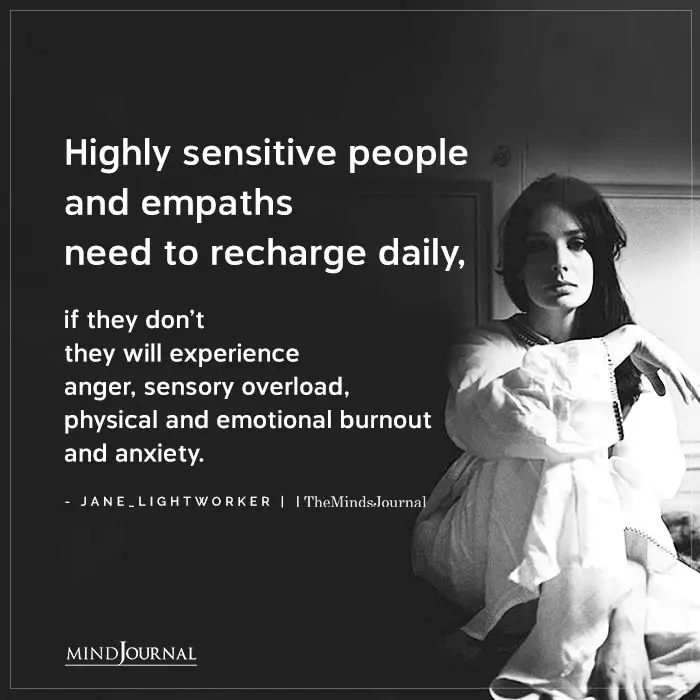
If you feel stressed and disconnected from yourself, it’s time to reevaluate your schedule.
4. Learn to say NO
Agreed, saying ‘No’ to someone’s face is very uncomfortable for a highly sensitive person, simply because they are kind and don’t want to hurt anyone’s feelings. But you need to remind yourself of all the times you gave in to someone’s request, although there was a lot on your plate already, and how it drained you out in the process.
Remember, you have taken a conscious decision to protect your energy, you have to find a way to refuse and say NO to certain things. The best way to go about it is to buy some time. When someone approaches you with a request, tell them that you’ll check your schedule and get back to them. This gives you some time to think and come up with an explanation if you refuse.
Read: Setting Boundaries That are Clear and Well-Expressed
5. It’s okay to be sensitive and feel intensely
A friend, who is also a highly sensitive introvert like me saw how disconnected I was with my inner feelings and suggested I start journaling. That, by far, is the best advice I got from anybody. It has helped me to process my feelings and come to terms with my oversensitivity to matters others seem ignorant about.
As a highly sensitive person, you can’t help feeling deeply and intensely, and being an introvert means you don’t open up to anyone. But keeping things bottled up can get dangerous for your health and relationships. Accumulated frustrations and anger can spill out on someone who wasn’t at fault.
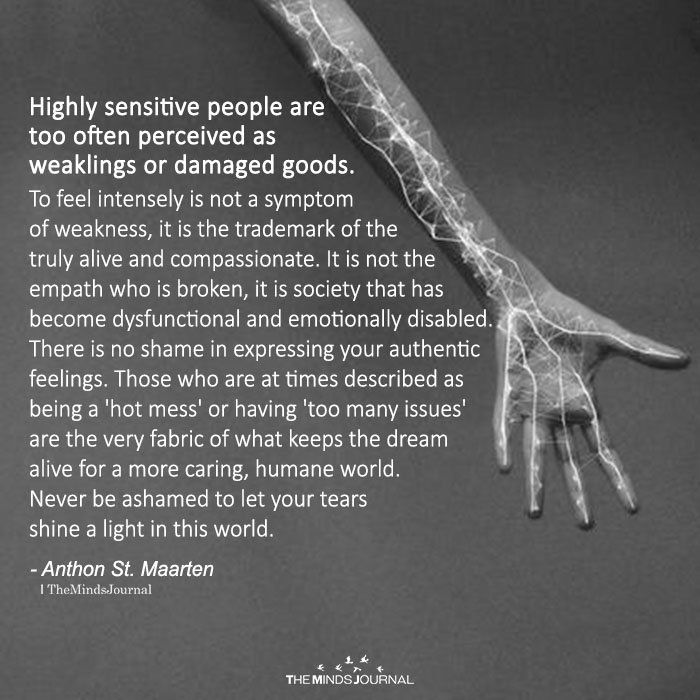
So spend some time understanding your feelings and emotions. And give journaling a shot.
6. Schedule a time to read, everyday
Introverts share a deep connection with the written word. They will choose books over people, any day. If you’re a highly sensitive person along with being an introvert, you should definitely embrace the power of books. They inform and help you feel connected at the same time. You’ll find peace and solace in getting to know new characters and connecting with them.
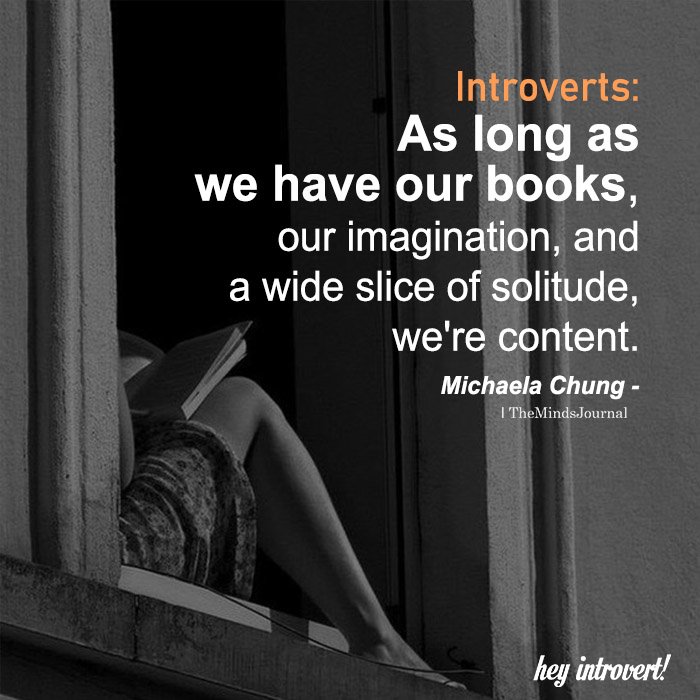
Read: The Power of Self-Care for Sensitive People
7. Don’t personalize everything
Yes, you feel and process things differently than most people do. But everything isn’t about you. People do things and react a certain way because that’s how they are. It’s their journey; it’s seldom got to do with how you are as a person. So don’t take things personally. I know it’s easier said than done. But you won’t change their behavior by changing yourself.
There are a few things you have to accept and live with. Being highly sensitive means feeling, caring, and hurting more than others. You’ll probably feel that other people don’t care as much as you do. They care differently, not necessarily less.
